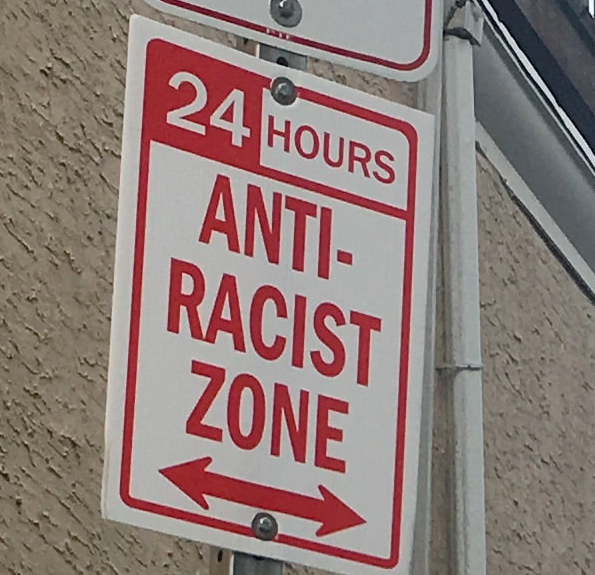BCS vows to take on systemic racism

Like much of MIT and the nation, the Building 46 community was horrified by the killing of George Floyd, and moved by the protest and social action movement that has swelled in response. BCS and Building 46 leadership, faculty, postdocs, graduate students and staff have taken a firm stand against anti-Black racism and begun collaborating on actions and commitments to recognize, understand, and address systemic racism in our own community and society at large.
The groundswell of first response came from graduate students, represented by the Gradvocates, a departmental organization that had already been formed to advance the interests of students in BCS. They urged the department to hold a community Town Hall in early June, which was led by faculty and graduate students. The Gradvocates gathered feedback and follow-up from across the BCS community, and funneled it back to the departmental administration, advocating strongly for actions that could begin soon as well as development of a more comprehensive plan.
Commitment to Act
- Expand the Diversity Committee, adding new faculty members and to now include staff, postdoc, and graduate student members so that we can have an empowered platform for new initiatives, new resources, and new policies.
- Contribute and raise funds dedicated to building an infrastructure that can enable lasting change.
- Use a portion of these funds to support anti-racist initiatives suggested by BCS graduate students.
- Use a portion of these funds to build relationships with Historically Black Colleges and other minority serving institutions with an eye towards supporting their work and offering faculty/student exchanges.
- Use a portion of these funds for outreach to local community colleges, state schools, and high schools to offer internship opportunities and expand our efforts to impact the pipeline.
- Use a portion of these funds to expand our ongoing efforts including the post-baccalaureate program, IAP workshops, and summer research immersion programs.
- Designate faculty members who can serve as points of first contact to allow for rapid responses to your questions/concerns about racism in the department.
- Answer questions from any member of the community about diversity, equity, and inclusion with as much transparency and data as possible.
- The Post-Baccalaureate Research Scholars Program is a two-year program designed to prepare students from underrepresented minorities to become competitive PhD applicants and successful graduate students. Funding has limited the program to admitting two students per year. Within those limits, the program has been successful, with its four most recent participants now in Ph.D. programs at MIT, Princeton, and Stanford.
- The MIT Summer Research Program (MSRP) brings talented sophomores and juniors from other colleges to MIT. BCS hosts about 15 students each year; so far, 11 MSRP alumni have enrolled in the department’s Ph.D. program. “With additional funding and participation by faculty, we could probably increase the program to 25 students a year, which would be a 50-percent increase,” says Professor Pawan Sinha, chair of the BCS Diversity Committee.
- The Quantitative Methods Workshop, hosted by the Center for Brains, Minds, and Machines, invites students (75 to 80 in each of the last three years) from select partner institutions for a seven-day workshop in computational tools and techniques used in neuroscience.
- Increased partnerships with minority-serving institutions in the Boston area and faculty visits, seminars, and workshops at historically Black colleges and universities.
These commitments, along with suggestions from the BCS community, has formed the basis for ongoing meetings and planning by the BCS Diversity Committee as well as a working group of faculty, graduates, postdocs, and staff.
“These programs are beneficial in bringing students to the department, but we still face a significant challenge in developing programs that will increase faculty diversity. Some of our new initiatives are being designed to address this need,” said Sinha.
“It was clear that we need to be oriented to action, to take on what we can do in the short and long run to take on systemic racism both here at home in our department, and in the country at large,” says DiCarlo.
Early Steps
By the end of June, graduate students, staff, and postdocs had volunteered to serve on the expanded BCS Diversity Committee, and the BCS Graduate Admissions Committee had decided to remove the requirement that applicants take the GRE.
The department and Diversity Committee also began working on plans of action and estimating the resources of time and funds that would be needed to enable progress and lasting change. Two overarching considerations shaping this work are transparency and engagement: The entire department should know what diversity-related initiatives are being planned and be able to contribute to them. And, the enhancement and nurturing of diversity should be a mission that is shared by the entire BCS community, and elicits broad engagement.
“The pledge to take action was the easy part,” says DiCarlo. “The greater challenge is defining our goals, developing and implementing effective programs and policies to accomplish them, organizing our community to pull together, and tracking our progress in a meaningful and quantifiable way, all while also working to make the department culture more welcoming and inclusive. To make real and lasting change, this coordinated set of efforts must be at the very core of what do – we must live and breathe this work every day just as we live and breathe research and education every day. To do that, we will need the power of the entire BCS community, but I know that we are each ready to join the fight. So let’s get to work together.”
Photo credit: Bill Montgomery

